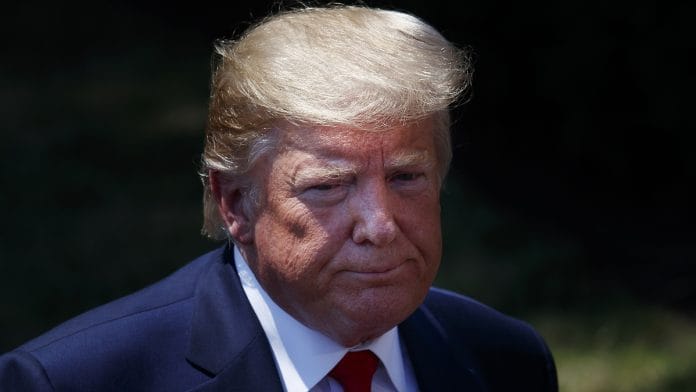New York: Secretary of State Michael Pompeo says he doesn’t know when or where President Donald Trump’s may meet with the Taliban, after U.S. and Taliban officials signed a peace deal aimed at winding down the war in Afghanistan.
“They have an enormous amount of American blood on their hands,” Pompeo said on CBS’s “Face the Nation” Sunday. “We’re going to see if the Taliban are prepared to live up to the commitments they made.”
Trump said Saturday at a White House press conference that he plans to meet with Taliban leaders “in the not-too-distant future.”
Many details were left to be hashed out after Saturday’s signing ceremony in Doha, most notably the contours of a lasting peace agreement between the Taliban and the Afghan government.
The deal called for as many as 5,000 Taliban prisoners to be released by the U.S. and Afghan governments before the formal peace talks begin in Oslo this month. Those 5,000 would be exchanged for 1,000 people held by the Taliban, according to the State Department.
Afghan President Ashraf Ghani told CNN on Sunday that there has, in fact, been no decision to release the prisoners.
Also read: Why the Taliban is celebrating Donald Trump’s peace plan for Afghanistan
Sovereign Decision
“President Trump is not asking me to release these people. We have not made a commitment to release them,” Ghani said on CNN’s “Fareed Zakaria GPS.” “It’s a sovereign Afghan decision. We will discuss the question of prisoners as part of a peace deal which has to be comprehensive.”
Ghani added that Pakistan must stop sheltering Afghan Taliban members for any meaningful peace deal to be reached.
“If you’re going to have sustainable peace there needs to be clear commitment that they’re going to dismantle their structures outside,” he said. “The people of Afghanistan need to believe that we have gone from war to peace and not that the agreement will be a Trojan horse.”
Saturday’s deal was slammed by Representative Liz Cheney of Wyoming, the House GOP Conference Chair.
“Releasing thousands of Taliban fighters, lifting sanctions on international terrorists, and agreeing to withdraw all U.S. forces in exchange for promises from the Taliban, with no disclosed mechanism to verify Taliban compliance, would be reminiscent of the worst aspects of the Obama Iran nuclear deal,” Cheney said in a statement.
Troop Levels
The deal signed Saturday calls for U.S. troop levels to fall to 8,600 within 135 days, from about 13,000 now, and for all U.S. forces to withdraw in 14 months if the accord holds.
Representative Adam Smith of Washington state, who chairs the House Armed Services Committee, said troop reductions “must be carefully executed” to ensure stability.
“In order to contain the terrorist threat as we draw down our troop levels, it is critical that we coordinate closely with our allies as well as our partners in the Afghan government,” he said.
Pompeo said the road ahead for peace talks would be “rocky and bumpy.”
“No one is under any false illusion that this won’t be a difficult conversation, but that conversation for the first time in almost two decades will be among the Afghan people,” he said on CBS. “And that’s the appropriate place for that conversation to take place.”
Also read: US and Taliban sign peace deal aimed to end over 18 years of conflict






